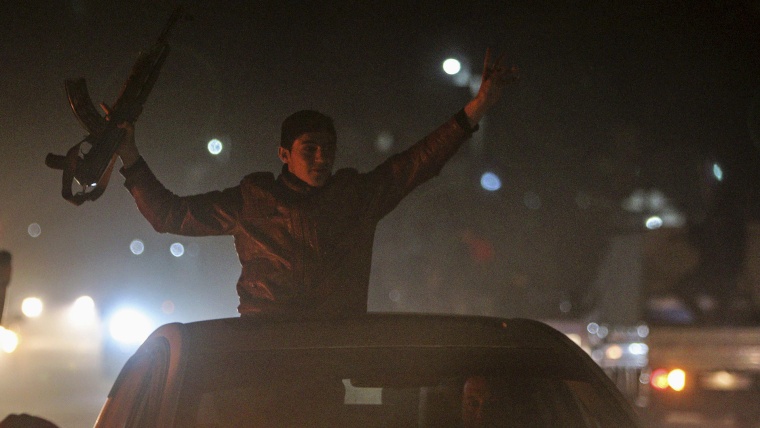The U.S. military offensive against Islamic State militants has been ongoing for five months, and the routinization of the conflict has largely pushed developments from the front page. We have some general sense that strikes against ISIS continue, but tangible results are elusive, and Congress hasn't bothered to even authorize the mission.
Kurdish militias regained full control of the northern Syrian town of Kobani on Monday, driving Islamic State militants out with the help of American-led airstrikes, Kurdish activists on the scene said. The bitter three-month battle for the border town took on outsize symbolic significance as it unfolded within sight of the Turkish border. It became the most visible arena in the American-led coalition's fight against the Islamic State, which has seized large areas of Syria and Iraq, and the militant group's retreat dented the aura of invincibility it has sought to cultivate.
There's a credible debate to be had about just how strategically significant this victory is in the broader context. The editorial board of the
Washington Post emphasized today, for example, that there have been roughly 1,000 airstrikes on ISIS targets, and three-quarters of them focused on Kobani.
In other words, it's a tough tactic to duplicate. That said, a specific recipe was tested in Kobani -- U.S. airstrikes coupled with "
determined" local allies on the ground -- and it matters that it was successful in forcing an ISIS retreat.
I've been one of the skeptics of Obama's strategy, and I'll remain so until the Iraqi military demonstrates the same fighting ability as the Kurdish peshmerga. Kobani, after all, is more a symbolic victory than anything else, and ISIS continues to control large swathes of Iraq. Nonetheless, at a minimum this shows that ISIS is hardly unbeatable, something that Iraqi forces probably needed to see. Bottom line: this is a proof of concept. When we can do the same thing in Mosul with Iraqi forces in the lead, then I'll be a real believer.
As for Congress, which has been
indifferent to doing much of anything about the military intervention abroad, there are still members eager to step up. Yahoo News
reports this morning that Rep. Adam Schiff (D-Calif.), the top Democrat on the House Intelligence Committee, will introduce a resolution today authorizing force against ISIS, but in a narrowly tailored way: Schiff's measure "would impose strict limits that the Pentagon publicly opposes, forbidding the use of U.S. ground troops to carry out combat missions and limiting military action to Iraq and Syria."
"I'm frustrated with the White House, but I have the most discomfort with the Congress itself, because it's our constitutional responsibility to declare war," the California Democrat
said. "We're the institution that has the strongest interest in moving and exercising our prerogative under the Constitution."
Schiff's resolution, which would supersede the 2002 AUMF, would expire in three years. Republican leaders may have a serious problem with this, but at present, their alternative policy does not exist.
